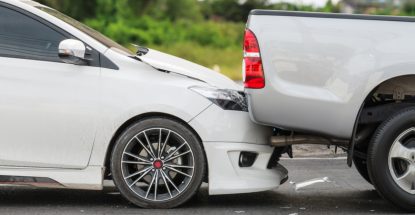Despite all the safety measures in place to ensure road safety, despite many drivers’ diligent efforts to follow all traffic rules and help keep their fellow motorists safe, traffic accidents still happen. So while you yourself may have been as careful as you can be, you may still find yourself witnessing a crash.
It’s only logical, then, that you should know how to act in the event that you witness a car crash, or any road accident for that matter. It is part of being prepared for any road emergencies.
In general, these are the best actions to take if you witness a crash:
1. Ensure your own safety.
Before anything else, make sure you are safe—and everyone else in the car if you have passengers. If you’re driving and near enough to the where the crash happens, find a safe spot to stop (at least 100 feet from the site) and put on your hazard lights. Be sure to stop far enough away so you don’t put yourself in danger of broken glass, leaked fuel, or flames. Check yourself, your passengers (if any), and your car.
2. Call for help.
Even if it’s likely that someone else has already called 911, just go ahead and make your own 911 call, especially if you’re at the scene just seconds after the crash. And even if the wreck doesn’t look serious, the authorities still need to be notified. Inform the 911 operator that you witnessed an accident and provide the following details: location, number of people or vehicles involved, and any other details such as whether you see smoke or flames or someone badly injured.
3. Check on the people involved in the crash and help in any safe way you can.
As soon as you’re certain it’s safe to approach the crash site, check on the crash victims, unless other people are already there and doing exactly what you intend to do. All the same, let everyone know that you’ve called 911 and then ask if there’s anything else you can do to help at the moment. If tempers start flaring, try and be the voice of reason and redirect the concerned parties’ attention to helping anyone who is injured.
However, unless there’s danger of an explosion or the car catching fire, you should not move anyone who is injured. You don’t know how serious the injury might be, and you don’t want to risk making it worse. Let the professionals tend to the injured.
4. Remain on the scene to give your statement to investigators.
If you’re a firsthand witness to the crash, the police will need your statement at the scene, so you can be of further help by remaining on the scene to tell investigators exactly what you saw happen, while details are still fresh in your mind. Provide the police your contact information since you might be called to be a witness by legal and medical authorities, and perhaps insurance claims agents. Even if someone is clearly at fault and you know it, don’t add anything to your statement just to make sure that the person at fault gets punished. Stick to the facts and be consistent.
If the crash you witnessed involved fatalities, you are likely to get traumatized. Watch yourself closely in the days following the crash and take note of any changes, any signs of anxiety, depression, or mental anguish. Alternatively, why not get ahead of the situation and talk to a professional and ask for tips to process your experience in a healthy way.

